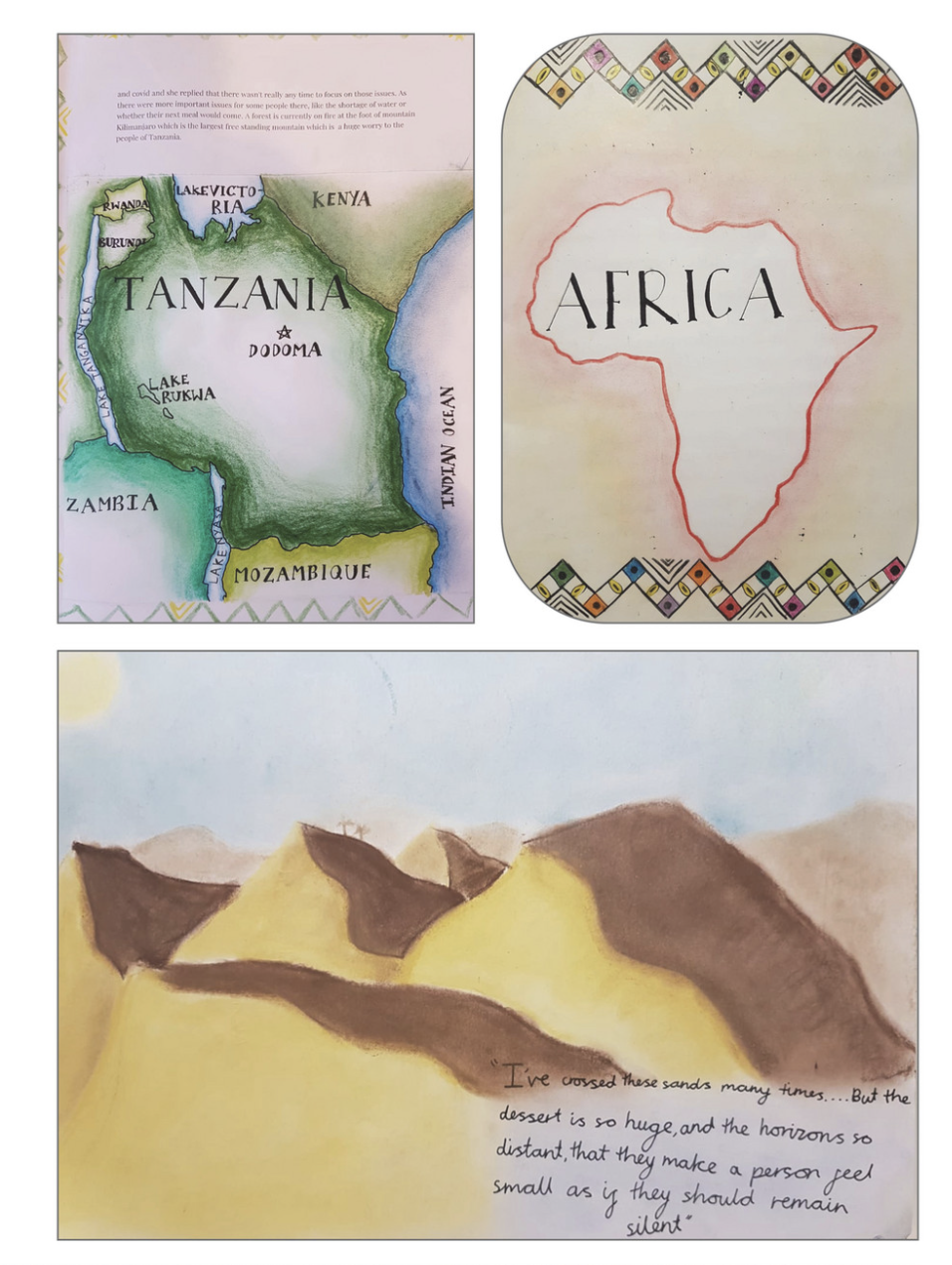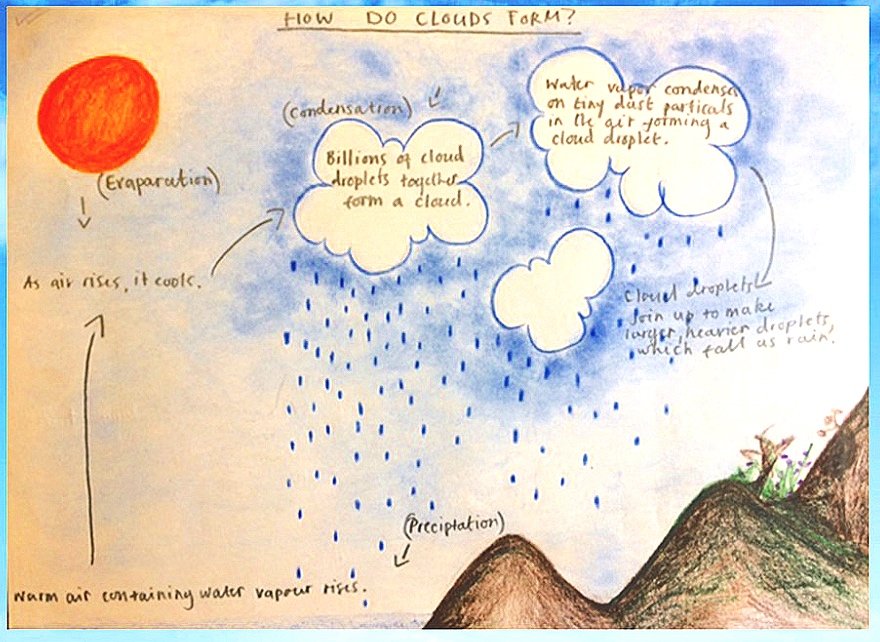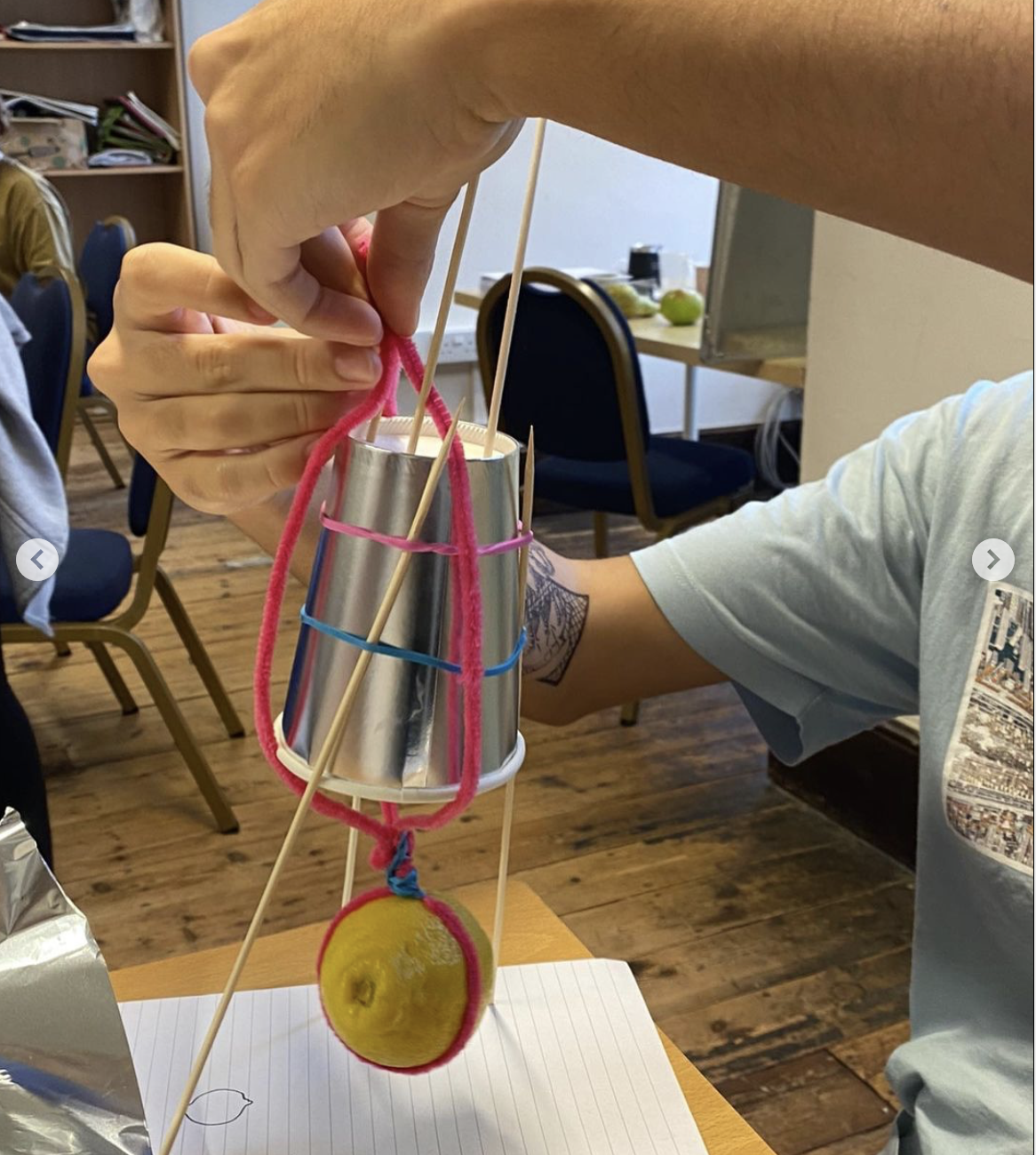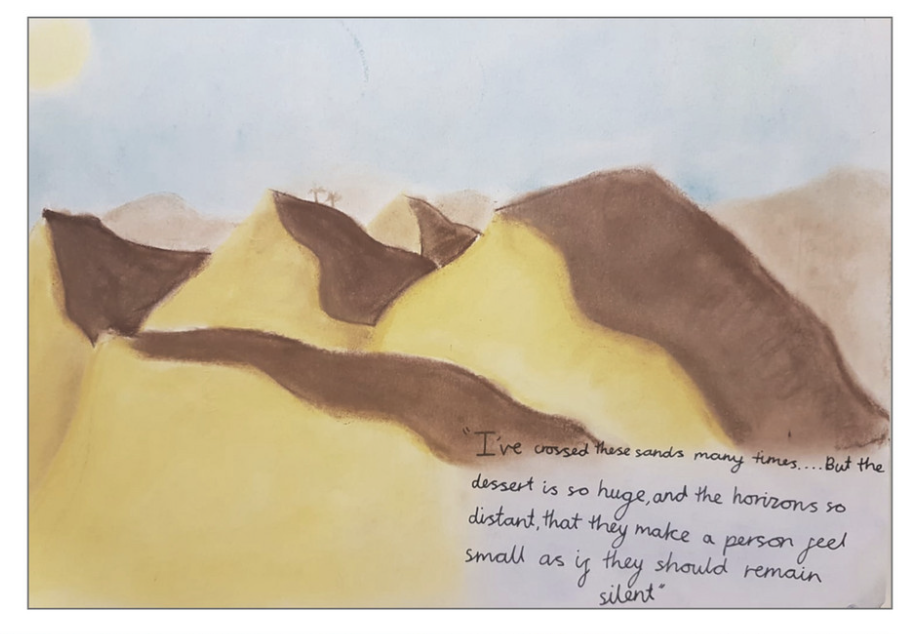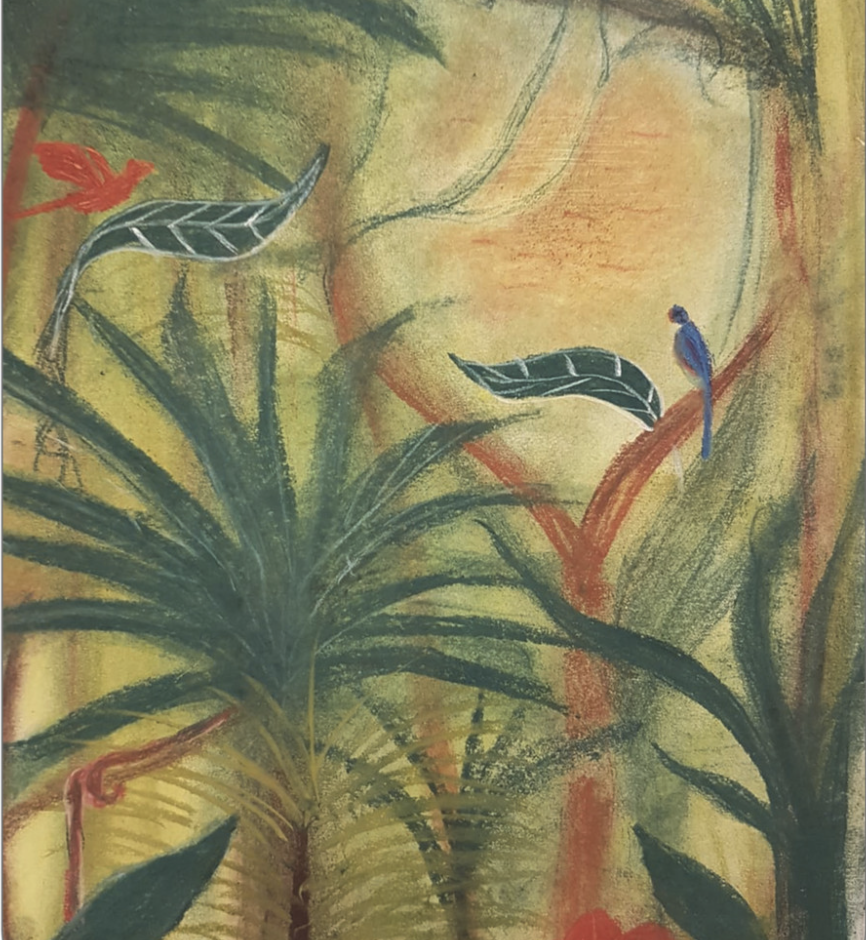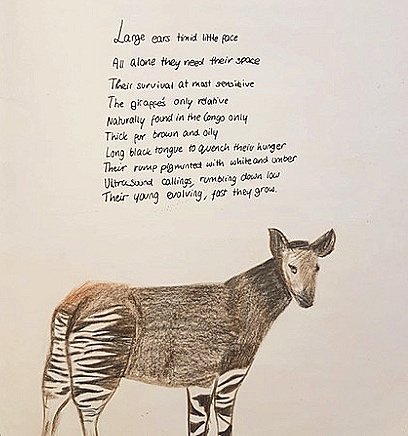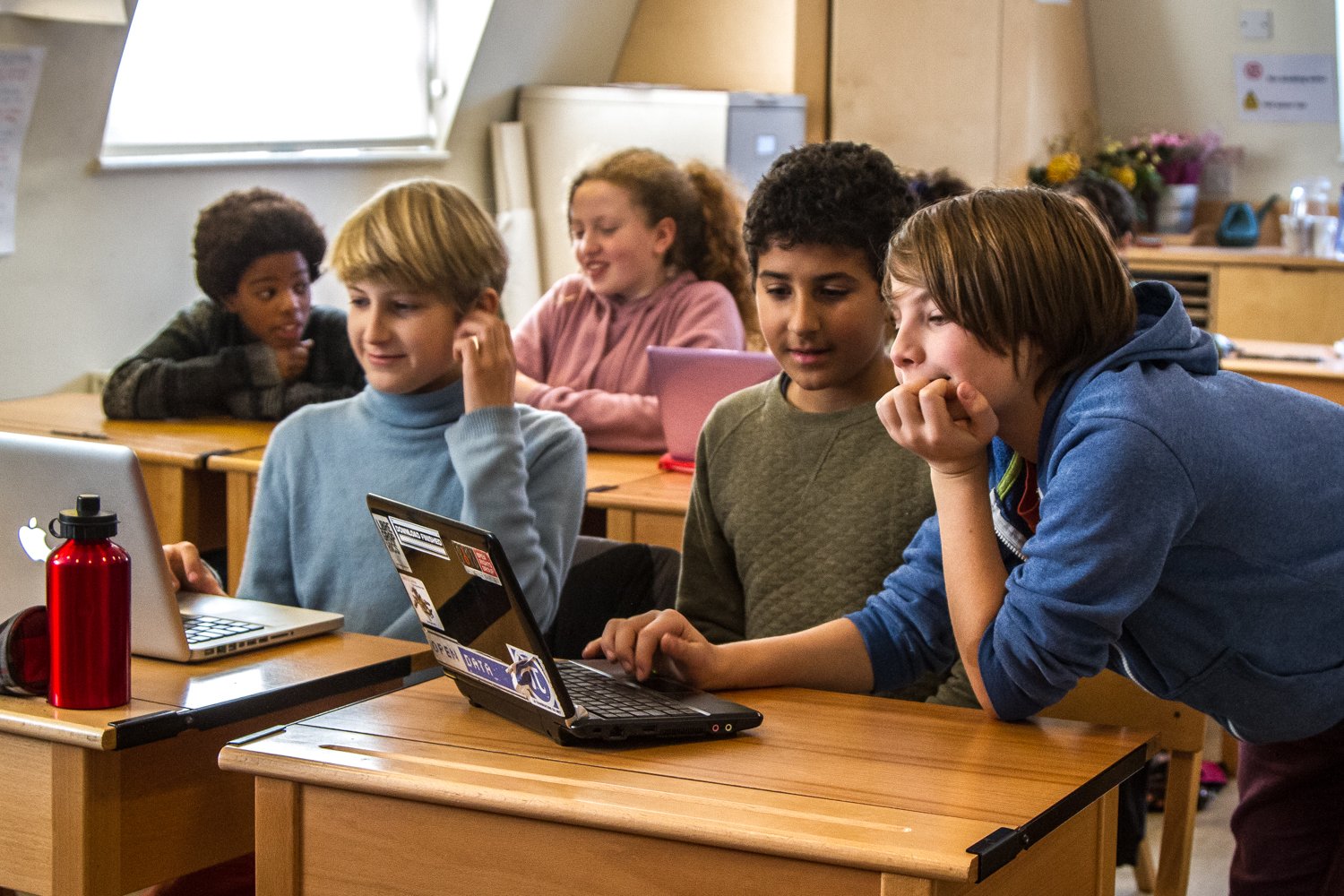
Middle School
Age 11-14: Classes 6-8
Childhood into Teenage years
As children move on from their primary years our Middle School curriculum provides intellectual challenge and emotional support throughout the transition from childhood to becoming young teenagers.
Our Waldorf rhythm provides structure and surety as pupils navigate many developmental milestones and the onset of puberty.
Academic work increases in depth and breadth and, from age 11 onwards, pupils’ intellect and critical thinking emerges more strongly.
Alongside physical changes, those beginning Middle School look for balance between their own individuality and their desire to belong, and have a passionate sense of justice and a desire to understand the world.
Our curriculum broadens to include Astronomy, Geometry, Business Math and the Roman Empire, which all emphasise unity and lawfulness and deepens the knowledge and skills introduced in the Lower School.
Technology is integrated throughout the curriculum and languages advance from conversational in French and German to encompass reading and writing. Orchestra, individual instrument tuition and choir take on more complex musical compositions and performances.
There is a focus on independent learning, research skills, media maturity and scientific discovery. Ahead of Upper School, Class 8 undertake a major individual project across the academic year, requiring personal research and investigation to create a written and illustrated dissertation, practical project and public presentation.
Team and competitive sports are introduced with an emphasis on effort, technique, teamwork, sportsmanship, and self-improvement. Art, craft and immersive experiences continue to be integrated into daily learning.
Drama continues each year, with Class 8 studying a text in detail and putting on a full-scale production in a professional theatre, involving set and costume production alongside performance and often supported by pupils in Class 6 and 7.

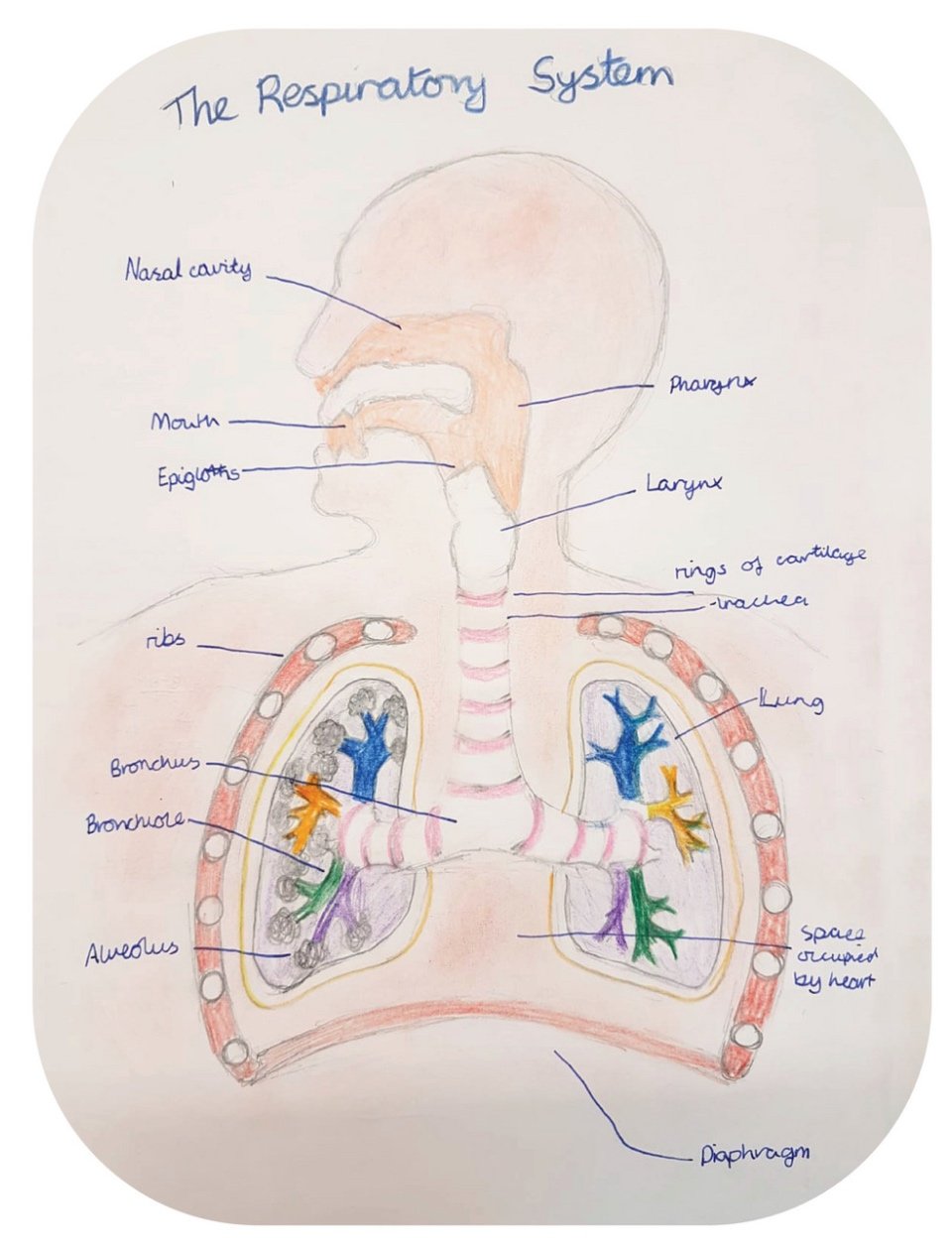
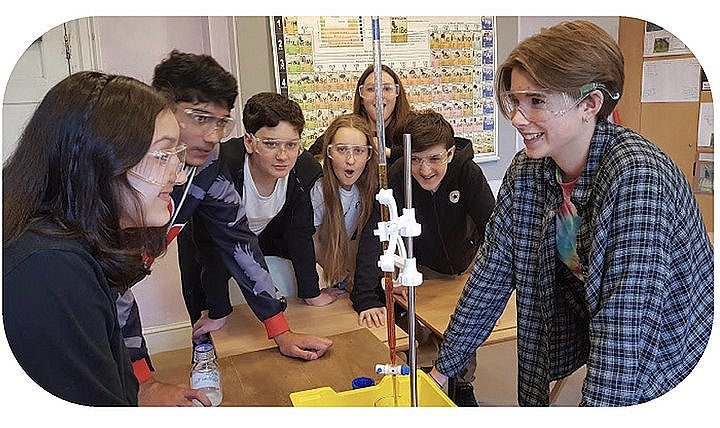


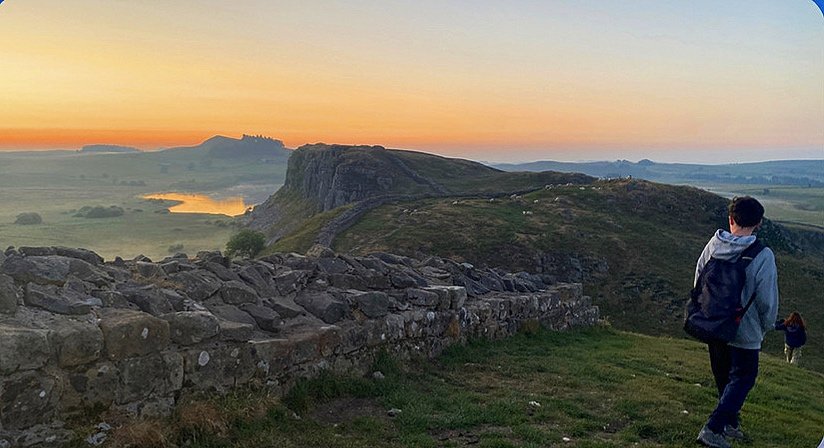

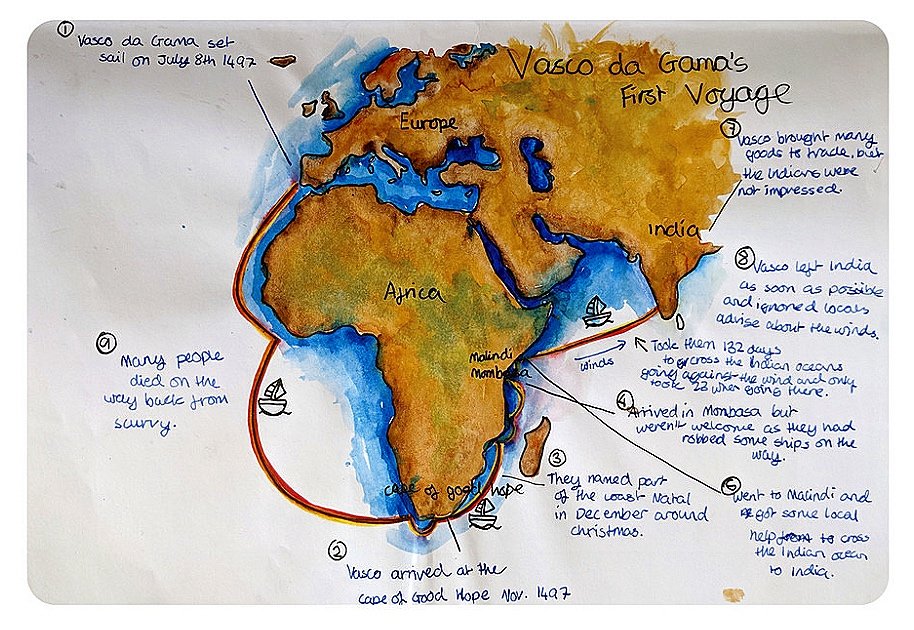




Admissions for Sept 2024
Age 11-12 - Class 6
Class 6 in our Middle School is the equivelent age as secondary school.
If you would like to find out more about admission to Class 6 in September 2024 and haven’t been able to book on a school tour please get in touch.

Class 6: age 11-12
-

Literacy
Including Poetry - form and writing
Children become confident writers who enjoy writing in different genres.
They begin to develop the complexity of their writing through setting a mood and tone, varying sentence length and structure and using more sophisticated transitional phrases.
Children’s writing is securely structured, organised and punctuated, with attention paid to the purpose, audience and genre, and includies poetry writing and magazine creation. Literacy plays an active role in drama exercises, with pupils beginning to practise self-expression.
-

Mathematics
Percentage and Ratio
Continued consolidation and development of fluency in mental and written arithmetic.
The students are now at the point where they are ready to work with formulae and to discover how this abstract concept can be applied to solving everyday mathematical problems, introduced in the Business/Commerce Main Lesson.
The pupils’ work on fractions and decimals will be extended to include percentages, ratios, statistics, handling data, and business maths in authentic, practical contexts where possible (including, for example, Simple Interest, compound interest, VAT and Profit and Loss),
-

Social Science - History
History: the transition from ancient to modern:; the decline of Greece, the rise and fall of Rome, and the effects of these cultures on European civilization up through the Middle Ages.
Children explore the cultures and economies of a range of early complex societies and their significant mythological, legendary and historical figures through vivid pictorial narrative, songs, texts and verses.
We look at the origins of modern societies and how European hegemony began. Pupils use a range of historical vocabulary and identify sources of information, e.g. archaeology, artefacts, artworks and texts.
-

Science - Our Body, Health & Hygiene
Linked to Zoology, pupils learn more about the human body and understand sex in humans both as a means of reproduction, and as a positive aspect of a healthy intimate relationship.
They examine the difference between biological sex and gender identity and expression.
We compare and contrast the adults’ role in reproduction and care, and the relationship between adults and young, for plants, insects, fish/amphibians, birds, mammals and humans.
Child development (working backwards), and the development of a baby in the womb.
We look at the structure of the primary sexual organs. Biological sex vs gender identity and expression.
Love and relationships including LGBTQ+, sex and making love. Privacy.
-

Social Science - Geography
Including a self-driven project including academic research, written and illustrated project book, practical element and presentation.
We look at the features of several medieval societies around the world and the impact of urbanisation and an accumulation of wealth on innovation in a number of fields. Pupils explore the role of trade routes in the expansion of cultural exchange and interaction.
Linking to History we explore both chronologically and geographically a number of symptomatic examples of major cultures in Asia, Africa, Europe and the Americas from the Roman Empire to the late middle ages, understanding Europe’s place as a peripheral zone in the medieval global world for much of this time.
-
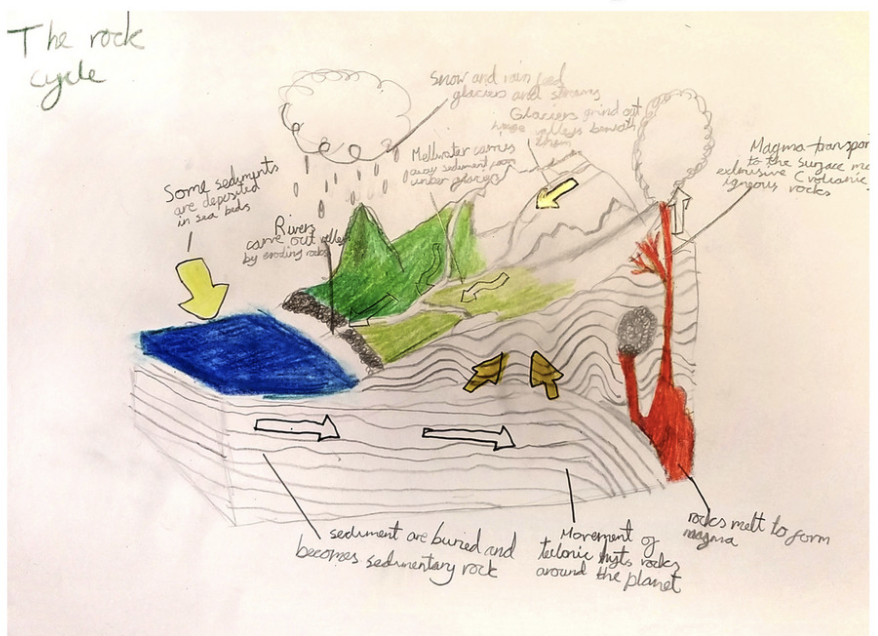
Geology
Pupils find out about the three main rock types and look at specific examples of these, including samples that they have collected in the field.
They look at typical landscapes associated with the different types of rock, and how these landscapes are shaped by geological processes.
We explore the processes of erosion, and the effects this has on the environment.
-

Science - Zoology
Learning about different animal species, their behaviour and reproductive cycles, including humans
Pupils learn about different insect species, their life cycles, their behaviour, and how this impacts their environment. .
-

Science - Physics
Acoustics
Optics
Heat
Pupils explore how the quality of a sound produced by an object gives information about the consistency of the material it is made from, and how the qualities of the material affect the pitch of the sound. They look at the effectiveness of different materials in conducting sound.
Pupils explore how to provide a good estimate of the speed of sound, and describe how this might change depending on atmospheric conditions, and how hollow bodies resonate differently in specific ways. Pupils look at how sound is material in motion, and how resonance can be made visible.
Pupils explore optics and, linking with mathematics examine how light is refracted. and the angle of incidence is equal to the angle of reflection.
-

Science - Botany
Building on Class 5, pupils now observe, describe, identify and name a number of additional flowering plants in their local environment, demonstrating their knowledge through detailed drawings which show an appreciation of the beauty of the plant, as well as the structure.
Children examine different tree types, both local and exotic, their main characteristics, their impact on the environment and their use for people. They look at a range of typical hedgerow plants, and examine hedgerows as a habitat and the benefits of retaining hedgerows in the farmed environment.
Children can describe and write about the benefits of forests and the risks associated with clearing forests and de-forestation.
-
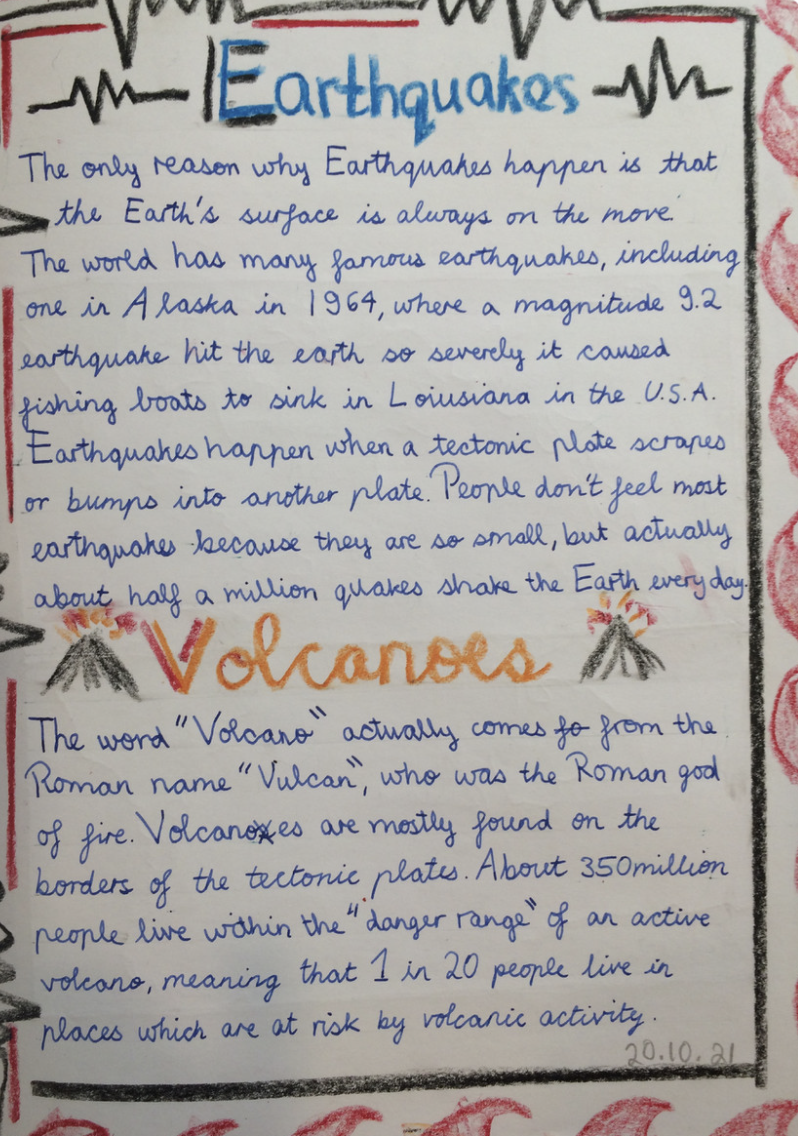
Physical Geography
Landscapes, Earthquakes & Volcanos
We explore the landscapes created and shaped by geological processes and forces, such as erosion, vulcanism, and look at the processes in detail.
We compare and contrast the various landscapes of Europe from the Atlantic Seaboard to the Urals (e.g. uplands, mountains, plains, estuaries, river systems etc).
We explore the impact of tides and ocean currents on the coastal waters, coast lines (Atlantic, Baltic, Mediterranean, Black Sea) weather systems and agricultures and fisheries of Europe.
We explore the shapes of the continents, the major mountain chains, deserts, steppes, forests, temperate regions and river systems.
-

Computing & Technology
Introduction to ICT hardware
Online Safety including:
Examining the differences between fact, opinion and belief and explore influence, persuasion and manipulation in this context
Exploring how online identities can be created, copied, modified, manipulated and altered, and how people might represent themselves online
Explore trust and relationships online: 'netiquette', appropriate behaviour, social networks, discrimination, harassment, and how to recognise and get help with cyber-bullying
Looking at the impact of sharing personal information online, including the concept of a 'digital reputation' and degrees of anonymity
looking at the impact of technology on health and wellbeing
Looking at privacy and security, including passwords and permissions, the harvesting of data, scams and phishing and exploring the use and reuse of content on the internet.
-
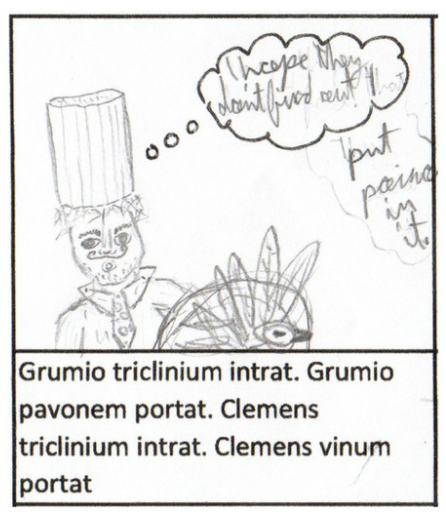
Latin
Linked to both our study of the Roman Empire and Linguistics.
We use Latin to learn about a Pompeian family and their daily lives in the first century AD and explore the linguistic connection between Latin and English.
-

Astronomy
Linking to our Main Lessons on the Rome and the Middle ages and also to Maths we explore innovations in astronomy and navigation.
-

Geometry
Theorems, proofs
-

Culture & Religion
We link to Culture & Religion to History & Geography for example exploring Pele; the goddess of fire, lighting, and volcanoes in Hawaiian indigenous religion.
We link to our Main Lesson on Rome and the Middle Ages and explore major cities of this time, including innovations in art, mathematics, science, technology, medicine, astronomy and navigation, and the development and role of major religions.
-

Foreign Languages
French & German
Pupils explore creative writing, producing, for example, short stories, descriptive texts, short book reports.
Linking to our Main Lesson on Rome we look at the history of the target language, e.g. through Greek/Latin roots of words.
We explore explore the geography and culture of a country
-

Music
Orchestra, Choir and Individual Instrument tuition.
Regular instrument practice at home is required to support individual learning and help children develop their musical skills.
Pupils have the option to take formal music qualifications Grades from 1-8 in their instrument (Cello/Violin/Viola) - this can be arranged via their individual instrument teacher.
-

Art
Painting, perspective landscape drawing, modelling, charcoal drawing to explore light and shade.
Art often links to Physics and Geology Main Lessons with detailed studies of topics of light and minerology.
-

Games & Sport
Pupils have taster sessions from a range of sports from sailing, fencing and tennis, to archery, dodge-ball, rounders and basketball. We make use of expert local instructors and facilities and enjoy new skills and physical exercise.
Activities vary depending on pupils focus of interest, the seasons and local opportunities.
-

Craft
The crafts of Ancient Rome and making a personal mosaic
In Woodwork pupils gain an understanding of how to use a range of tools safely, effectively and appropriately, with a knowledge of risks and how to manage them. They refine their practical skills in whittling and carving, creating useful objects.
-

Handwork
This year pupils develop skills in making a doll
-
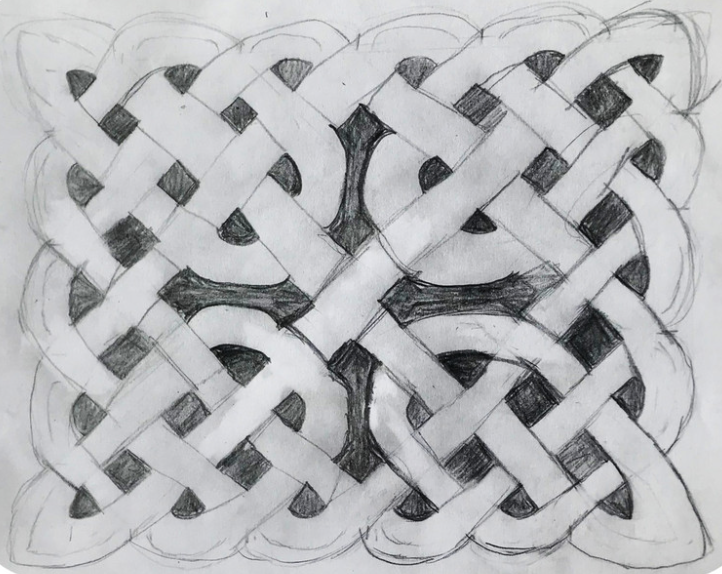
Form Drawing
Class 6 - Roman Experience
A highlight is a residential trip to experience life as a Roman at Hadrian’s Wall, Northumberland.
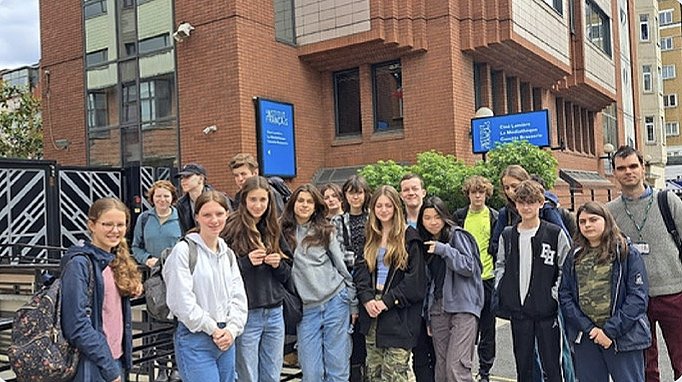
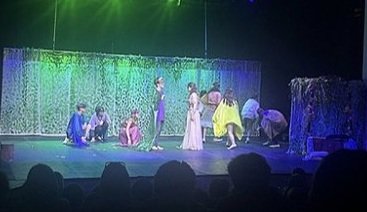

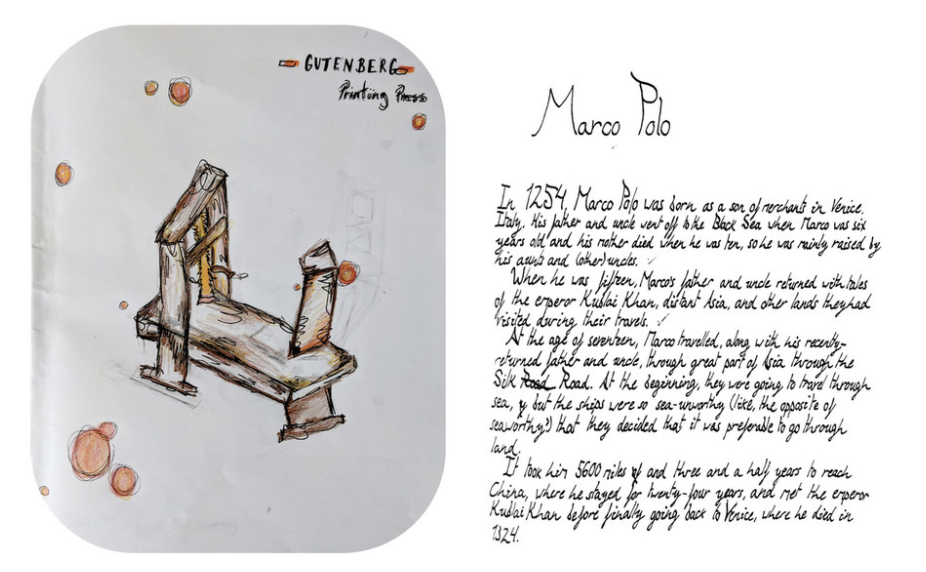

Class 7: age 12-13
-
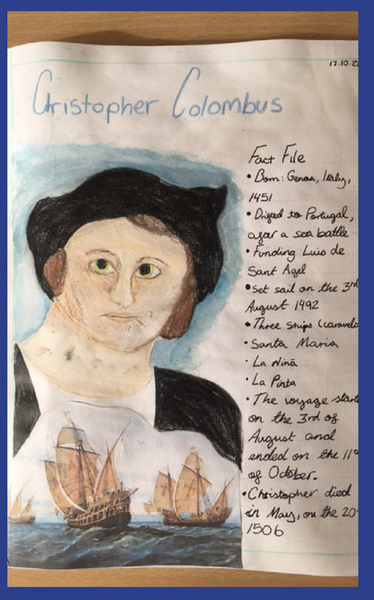
English Language & Literature
English including creative writing with engaging the feelings of wish, wonder and surprise.
Grammar, comprehension, text analysis, consolidation of literacy skills.
Literature – comparing writing styles, poetry and comprehension.
Exploring the detailed analysis of text using a range of technical language to describe literary and linguistic devices.
-

Mathematics
Algebra
Negative Numbers
Square and Cube Roots
To explore the area of a circle and the value of π
To explore the accurate calculation of the area of geometrical shapes, and any shape bounded by straight lines and circular arcs
To explore translations and movement properties of given figures
To explore Pythagoras' theorem
To explore tangents to circles
To explore perspective drawing
-

Science - Chemistry
Exploring combustion.
Practical experimentation including lime kiln.
Pupils explore the processes of combustion of familiar and unfamiliar materials, and the implications this has for practical life and fire safety.. Pupils can experimentally test for acids and bases, using simple indicators and scales. They understand and can apply formulas explore practical application of this in everyday life.
Pupils explore common metals, their properties, their origins and their uses and examine the positive benefits and possible environmental consequences of the mining and petro-chemical industries.
-

History
Renaissance and Reformation
The history of Algebra and the Fibonacci sequence (linked to Maths).
We look at of a number of significant people, places, events and artistic and technological innovations over the period from the late Middle Ages to the early 19th Century.
We examine the impact of colonialism, slavery, global trade, revolution and nationalism over this time from various perspectives.
We explore the emergence of industrialisation and its impact, and the emergence of nations and nationalism, particularly through revolution.
-

World Geography
Continents & Culture including:
Renaissance and the rebirth of the future of ancient Greece & Rome in philosophy, architecture and arts.
Pupils examine the major physical geographical features of two particular continents, and the relationship of these to human activities in the area using a range of techniques and media.
We explore how traditional human societies are shaped in their culture and activities by the environments they are situated in, and how this has changed over time.
-

Science - Physics
Combustion & Heat
Light
Sound
Magnetism
Pupils experiment with copper and zinc plates to generate charge and create circuits
-
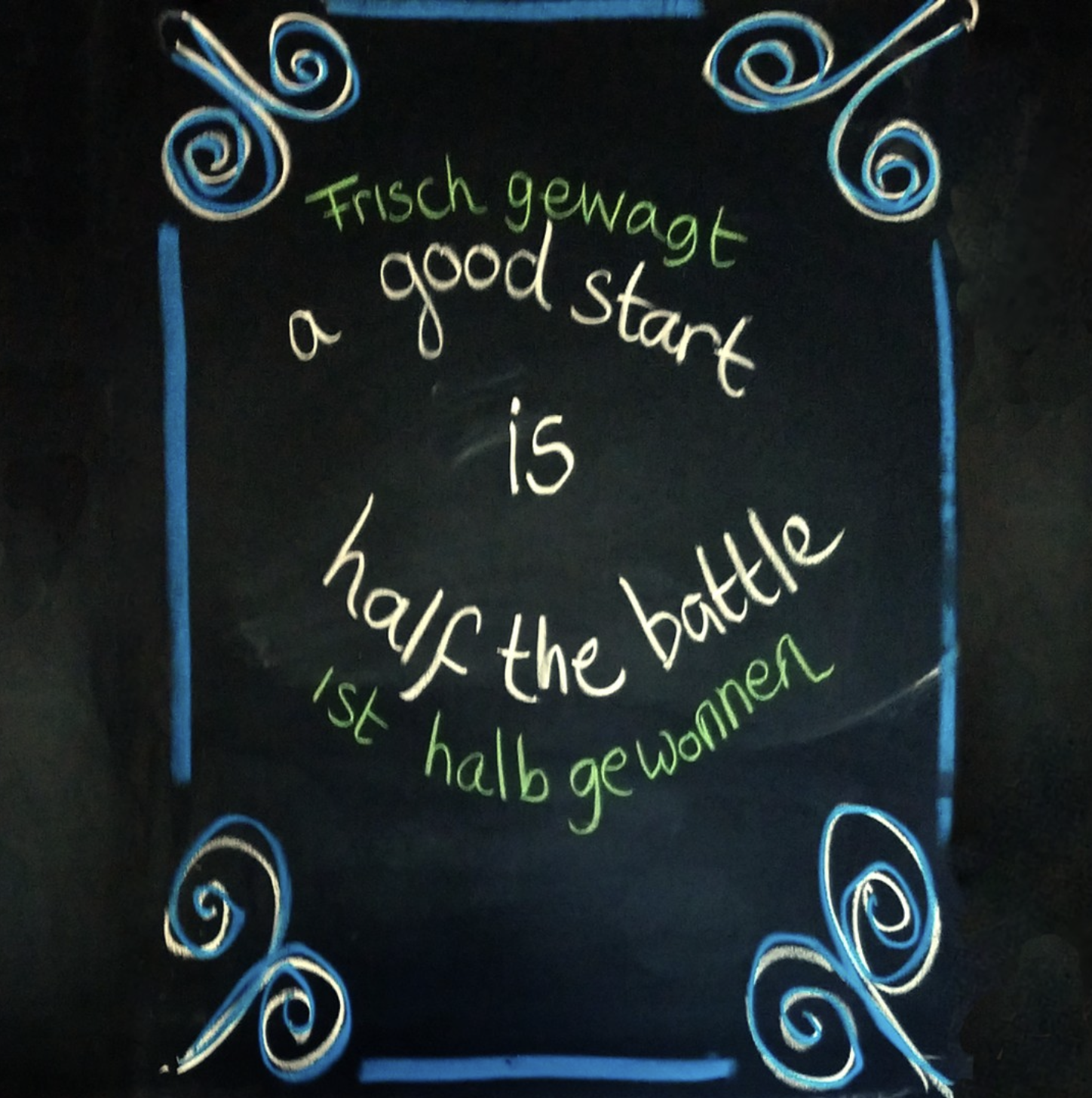
Foreign Languages
French & German
We explore biographies of speakers of the target language, particularly related to main lessons, e.g. scientists, explorers.
Pupils take part in conversations, improvised dialogues, and short dramatic pieces.
We look at the geography and culture of a country where the target language is spoken, looking in particular at historical and cultural topics, and modern life in the country (e.g. popular music, contemporary fiction and poetry, etc.
-

Music
Orchestra, Choir and Individual Instrument tuition.
Regular instrument practice at home is required to support individual learning and help children develop their musical skills.
Pupils have the option to take formal music qualifications Grades from 1-8 in their instrument (Cello/Violin/Viola) - this can be arranged via their individual instrument teacher.
-

Handwork
Using Clay Modelling to reflect gestures and emotion
-

Art
We explore the rules of one and two point perspective and the drawing of shadows.
Pupils explore creating coloured landscape pictures with both watercolour paints and oil pastels.
-

Computing & Technology
Word processing, excel, simple graphics, internet
Dangers and positive uses – simple reference
The history of communications technologies and computing to the present day.
Exploring different recording technologies
-

Science - Mechanics
Understanding the mathematics and a practical exploration of simple machines.
Pupils explore the impact of inclined planes and shapes on velocity and the nature and principles of levers, wedges, winches, pulleys and screws.
-
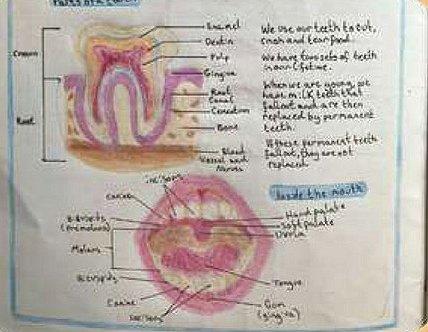
Science - Human Biology
This year pupils study a comprehensive overview of the body.
Digesetive System
Nutrition
Proteins, Fats, Carbahydryates
Reproductive System
Nervous System
Health, Disease and Disorder
Promoting mental health
Medicine and managing illness
-

Science - Sound & Acoustics
Linking to Biology and IT we explore the limits of human hearing and explore acoustic properties of different materials and their applications.
We link to Maths and explore the measurement of sound frequencies and to IT to explore different recording technologies.
-

Games & Sport
Pupils have taster sessions from a range of sports from sailing, fencing and tennis, to archery, dodge-ball, rounders and basketball. We make use of expert local instructors and facilities and enjoy new skills and physical exercise.
Activities vary each year depending on pupils focus of interest, the seasons and local opportunities.
-
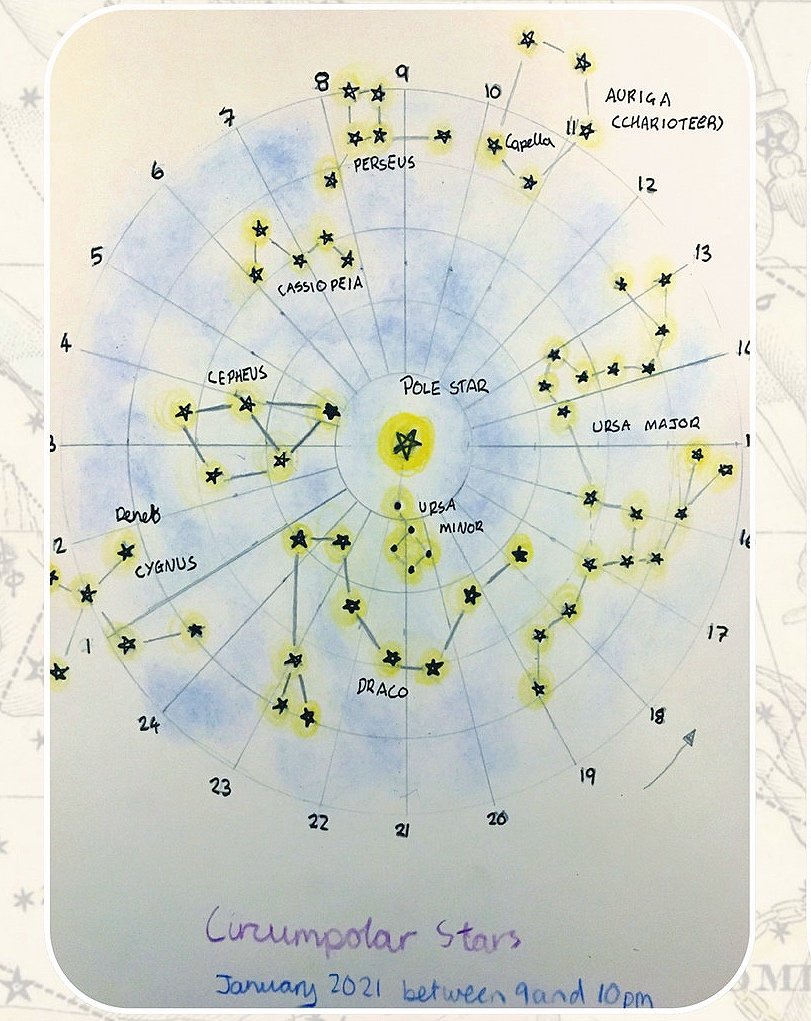
Astronomy
Navigation and use of the sextant and other tools to measure the angle of the Earth’s tilt and position of the stars; learning about the Solar System; the Earth’s seasons; history of astronomy and its key figures.
-

Woodwork
Pupils further develop their woodworking tool skills and explore how wood in different forms and from different sources can be shaped and transformed into useful and beautiful objects.
-

Drama
Students perform dialogue, skits and short plays, often including those that they have contributed to writing themselves, often based on books or other material they have studied across the curriculum.
Students take part in the writing, rehearsal, production and performance of drama on a small scale
They recite a wide range of poetry, including poems and poets of their own preference.
-

Eurythmy
Ballards & Tragedy
-

Yoga & Mindfulness
Helping young people find inner balance

Class 8: age 13-14
-

Literature & Language
English Literature: the short story, letters
Shakespearean drama analysed, adapted and performed
Grammar: consolidation
Students can present an independent research project to a wider audience, answering questions and responding to comments about their work. They perform in a full length play to an audience of friends, family and the wider public.
Students take part in structured debates, presenting arguments that both tally and disagree with their own opinions.
As part of Literature and Language pupils have the opportunity to explain and discuss their understanding of what they have read and evaluate evidence from a variety of sources.
Students can identify and give explicit explanation for the effect of text on the reader, analysing the impact of authorial techniques and devices with accurate technical vocabulary. They are able to question and admire aspects of content, form and function, comparing ideas and perspectives and how these are conveyed.
-

Mathematics
Focusing on practical applications of Arithmetic, Algebra, and Geometry and Graphing
This year pupils develop a sound understanding of the number system, and can use a range of strategies to perform both mental and written calculations with integers, decimals, negative numbers, proper and improper fractions and mixed numbers, using all four operations.
Pupils can can apply all of their arithmetic skills to multi-step word problems, including those involving time, length, weight, capacity and volume, abstracting the key information and breaking the problem down into logical, solvable steps, and explaining the calculation in their own words.
Pupils can complete a simple balance sheet and solve problems involving the calculation of interest on mortgages.
-
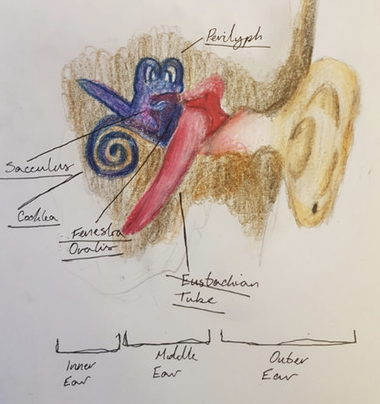
Science - Biology & Anatomy
The Human Body
Understanding the bones and muscles of human limbs, torso and head.
Pupils examine how they move, the mechanics involved and the expressive, aesthetic and physical opportunities our bodies give us.
They explore the connections between skeletal shape, the mechanics of birth, and brain development.
-

Science - Physics
Acoustics
Thermodynamics
Mechanics
Electricity and Magnetism
Hydraulics
Aerodynamics
Pupils gain an understanding of the hydraulic and aero-mechanic phenomena of the Archimedes principle, hydrostatic buoyancy, pressure and compression, specific weight, pumps, suction and aerodynamics. Theylook at practical applications of these principles, e.g. hydraulic tools, submarines, plungers etc.
-

Science - Meteorology
Weather phenomena, their causes and consequences.
We look at how weather data can be collected and used for forecasting and describe the history and economic advantages of this.
-
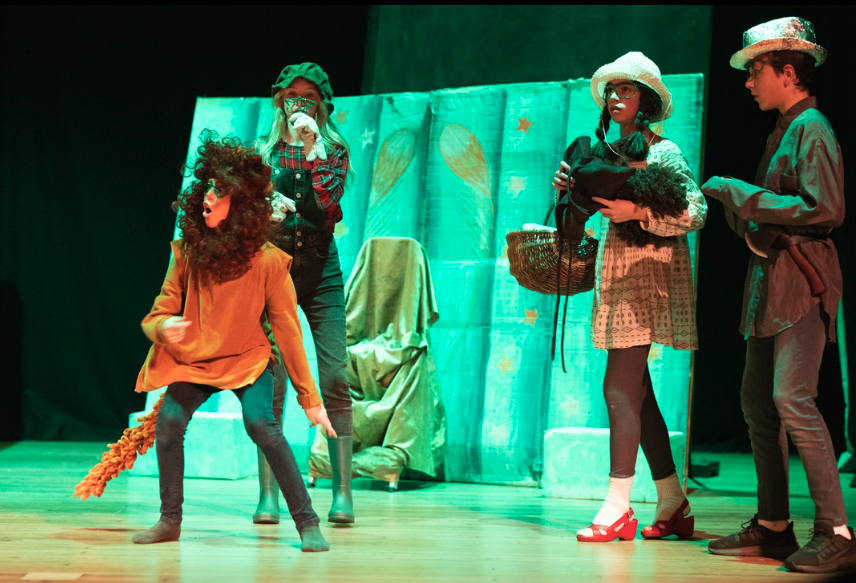
Drama
A major text is studied in detail as part of Main Lesson for example Shakespeare’s Midsummers’ Night Dream - interweaving English literature, English Language with Drama and Performance.
The result is the Class 8 Play - a full scale 2-hour theatrical production undertaken by the whole class, performed to both the school and external audiences..
Handwork and Craft involve costume and set production.
-

Science - Organic Chemistry
Pupils investigate tesing for sugar and starch, and their practically and explore the processes of fermentation and decay.
We look at how glucose is produced in plants through photosynthesis. Pupils compare the origins, nature and uses of a range of proteins, fats and oils; how proteins, fats and oils in human diets, how they are used by the body and the implications for health.
We examine eminent food scientists, their discoveries and the implications of these on modern foods and diets.
-

Modern History
The Industrial Revolution to the present day.
Pupils explore themes in modern world history through the study of symptomatic events, innovations and biographies.
We look at a number of perspectives of significant historical events from the early 19th to the late 20th century and look at the impact of technical innovation on both humanity and ecology.
-

Handwork
Machine Sewing
Designing and making clothes
Zips
Darning
Artistic Hand-Sewing Projects
-

Foreign Languages
French & German
Pupils have the opportunity to build vocabulary in a systematic and structured way, alongside learning topic specific and contemporary vocabulary in independent work
To work independently on projects focused on different cultural, biographical and historical themes
To read extensively from a wide selection of material.
To access a range of media in the target language, e.g. films, music
To consolidate previously learned grammatical knowledge and understanding
To explore further complex use of language, e.g. gerunds, prepositions and cases, subordinate sentence structures, reciprocal pronouns, remaining tenses of verbs, dative accusative and genitive.
To explore the contemporary culture of a country where the languages are spoken, looking in particular at film, popular music, contemporary fiction and poetry, including a week-long overseas trip.
-

Music
Elizabethan Music
General Music
Symphonic Form
Orchestra and individual Instrument tuition
If desired pupils can take exams in music Grades 1-8
Middle School Choir
-

Science - Ecology
Linking to Meteorology
Pupils can take learnings and relate information to the realities and consequences of climate change
-

Geometry
Measurement of surfaces and volume, platonic solids.
-

Eurythmy
Poems with contrasting moods
-

Sport & Games
Pupils have taster sessions from a range of sports from sailing, fencing and tennis, to archery, dodge-ball, rounders and basketball. We make use of expert local instructors and facilities and enjoy new skills and physical exercise.
Activities vary depending on pupils focus of interest, the seasons and local opportunities.
-

Cultural Connection & Exchange
As part of the Class 8 International Trip we make connections with other international Waldorf schools overseas and visit during the trip if possible.
-

Art
Pastels
Still Life composition
Pupils also explore applying the laws of one- and two-point perspective to construct drawings of cubes, pyramids, cones, spheres and cylinders, and apply the laws on one- and two-point perspective using vanishing points both within and outside the frame to create real and imaginary cityscapes and landscapes using watercolours, gouaches, oils, pastels, pencils and charcoal.
Dependent on class we may explore elements of design in relation to posters, book jackets and repeat patterns and incorporate the use of collage, colour contrast, lino and wood cuts into the execution of the designs.
-

Geography & World Economics
Bringing together History, Geography and Maths
Class 8 - International Trip
A week long immersive trip in culture, history and language.
Class 8 - Major Project
A year-long project including self-driven research, a dissertation, practical project and public presentation.
Class 8 - Theatre Production
A full-scale 2-hour production staged to a public audience in a professional theatre and integrated into English Language, Literature, Drama and Craft. 2023 production was Shakespeare Midsummer Night’s Dream.
